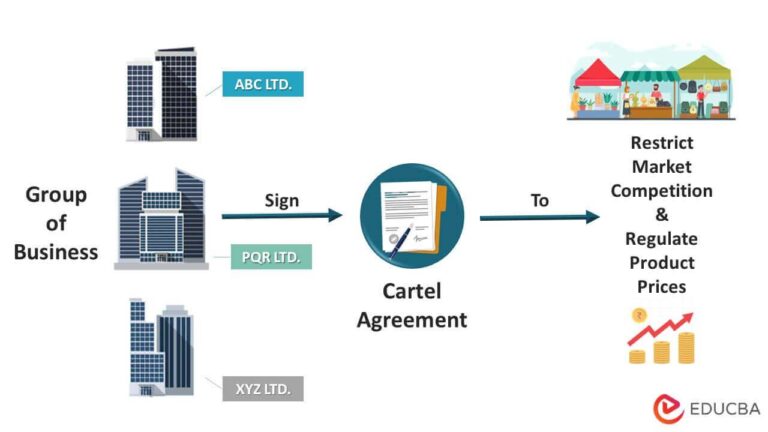Despite former President Donald TrumpŌĆÖs efforts to categorize drug cartels as terrorist organizations, these criminal enterprises continue to operate with alarming normalcy across the United States and Mexico. In an era where policy aimed at disrupting cartel activity was expected to curtail their influence, the harsh reality on the ground tells a different story. This article delves into the persistent strength of cartels, examining why terrorism designations have failed to significantly hamper their operations and what this means for law enforcement and communities caught in the crossfire.
Cartels Maintain Stronghold Amid Federal Terror Labels
Despite the Trump administrationŌĆÖs unprecedented move to designate major Mexican drug cartels as foreign terrorist organizations, these groups have continued to operate with alarming impunity. Federal terror labels, intended to disrupt cartel financing and operations, appear to have had limited impact on the day-to-day realities along the U.S.-Mexico border. Analysts highlight that cartels have adapted swiftly, employing sophisticated money laundering schemes and leveraging political corruption to remain entrenched.
Key factors contributing to the cartels’ resilience include:
- Diversified revenue streams: Beyond drug trafficking, cartels profit from extortion, human smuggling, and illicit mining.
- Localized control: They embed themselves in communities, often providing social services or economic opportunities.
- Weak enforcement: Jurisdictional challenges and limited inter-agency coordination dilute the effectiveness of anti-cartel measures.
| Cartel | Major Territory | Estimated Monthly Revenue |
|---|---|---|
| Sinaloa | Northwestern Mexico | $200M+ |
| Jalisco New Generation | Western Mexico | $150M+ |
| Gulf | Northeastern Mexico | $75M+ |
Examining the Limitations of Terror Designations on Drug Networks
While the Trump administrationŌĆÖs move to label certain drug cartels as foreign terrorist organizations marked a significant shift in U.S. policy, the practical effect of these designations has been limited. Despite increased sanctions and enhanced law enforcement tools, cartels continue to operate with impunity, often adapting quickly to circumvent new legal barriers. The designations primarily aim to restrict financial resources and international mobility, but drug networks, deeply embedded in local economies and armed with vast resources, have proven resilient to these pressures.
Several factors undermine the impact of terror designations:
- Legal hurdles ŌĆö Proving a cartel meets terrorism criteria in court remains challenging, limiting prosecutions.
- Jurisdictional complexities ŌĆö Cartels operate across multiple countries, diluting the efficacy of U.S.-centered sanctions.
- Community support ŌĆö In some regions, cartels offer economic lifelines, muddying local cooperation with authorities.
| Limitation | Impact on Drug Networks |
|---|---|
| Financial Restrictions | Often bypassed through informal channels |
| Asset Seizures | Cartels frequently relocate or launder assets |
| International Cooperation | Varies widely between nations, often inconsistent |
Unpacking the Impact on Border Security and Law Enforcement Efforts
Despite the heightened rhetoric and the Trump administrationŌĆÖs formal terror designations on several cartels, the day-to-day realities on the ground tell a more complicated story. Border security agencies continue to grapple with entrenched challenges that go beyond policy declarations. Cartels have adapted, exploiting loopholes and leveraging their vast networks to sustain illicit activities right under the noses of law enforcement. This resilience underscores a crucial point: designations alone cannot dismantle deeply rooted criminal enterprises that operate with sophisticated financial and logistical infrastructures.
Law enforcement efforts have seen a mix of successes and persistent setbacks. Key factors influencing their effectiveness include:
- Resource limitations: Constraints in manpower, technology, and cross-agency coordination hinder comprehensive border surveillance.
- Legal complexities: Jurisdictional hurdles and variations in state and federal laws complicate prosecutions.
- Cartel innovation: Use of drones, encrypted communications, and underground tunnels constantly evolve, requiring adaptive countermeasures.
| Impact Area | Current Status | Future Outlook |
|---|---|---|
| Border Patrol Staffing | Below optimal levels | Incremental increases planned |
| Interagency Cooperation | Improved but fragmented | Aimed for centralization |
| Cartel Tactics | Highly adaptive | Increasingly tech-driven |
Overall, the administrationŌĆÖs terror designations serve more as a political statement than a game-changing tactic. For border security and law enforcement, the battle against criminal cartels remains a complex, evolving struggle demanding sustained innovation, collaboration, and investmentŌĆöbeyond mere labels or executive orders.
Policy Shifts Needed to Address Root Causes and Disrupt Cartel Operations
To effectively disrupt cartel operations, a fundamental overhaul of current policies is imperative. Merely designating cartels as terrorist organizations overlooks the deep-rooted socioeconomic factors fueling their persistence. Sustainable change demands investment in local economies, education, and healthcare systems to dismantle the environments where cartels thrive. Without addressing poverty, corruption, and institutional weaknesses, enforcement efforts only scratch the surface, allowing cartels to adapt and flourish under new guises.
Key policy initiatives should include:
- Enhanced cross-border intelligence sharing and cooperation between federal, state, and local agencies.
- Community-based programs targeting youth involvement and gang recruitment prevention.
- Strengthening legal frameworks to close loopholes exploited by money laundering networks.
- Prioritizing rehabilitation over incarceration in drug addiction treatment.
| Policy Area | Current Issue | Proposed Shift |
|---|---|---|
| Economic Development | High unemployment; lack of opportunities | Targeted investments in job creation and vocational training |
| Law Enforcement | Fragmented efforts; poor coordination | Unified task forces with shared resources and intelligence |
| Judiciary | Corruption and impunity | Transparency reforms and independent oversight committees |
Wrapping Up
As the Trump administrationŌĆÖs attempts to combat drug cartels through terror designations continue to face criticism, the enduring influence and operations of these criminal organizations remain a stark reality. Despite heightened legal pressures and international cooperation, cartels adapt and persist, underscoring the complexity of tackling transnational crime. Moving forward, experts emphasize the need for multifaceted strategies that address not only enforcement but also the underlying social and economic conditions perpetuating cartel power. The evolving situation calls for sustained attention and innovative approaches if meaningful progress is to be made in curbing cartel-related violence and trafficking.




